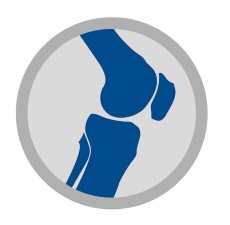HRC Programme 2022–2027
Project 4: A mātauranga approach to access, resourcing, and outcomes for Māori with OA
Aims
To provide kaitiakitanga over the data and also act as a korowai for hapū and whānau to ensure that the research will advance the recommendations of WAI 2575 stage one and inform future stages.
To apply a critical Māori lens to the intersections and implications of this programme and of HRC-funded Project 21-526 “Measuring the health state preferences of New Zealanders” (an investigation of equitable measurement of health-related quality of life in Aotearoa and the impact of common long-term conditions).
To develop mātauranga findings and outputs that are expressly relevant to whānau and hapū, to rangahau Māori, to Māori health professionals, and to the Waitangi Tribunal Wai 2575 Inquiry stages two and three.
Background
The Waitangi Tribunal Hauora report (Wai 2575, 2019) identified and prioritised themes of systemic failure in health services and outcomes. The Waitangi Tribunal found, in Wai 2575 (2019), “that appropriate measuring of, and reporting on, Māori health inequities needs to be a key accountability mechanism in the health secto”” (p122) and that “the Crown’s failure to institute mechanisms that ensure that Māori health outcomes are measured and reported on in a robust way undermines the ability of the system to improve the design and delivery of Māori health care. This, in turn, impacts on the way that Māori experience and receive care.” (8.5, p.152).
This programme seeks to align with and address the key findings of the Stage One WAI 2575 report, i.e. alignment with the articles of Te Tiriti o Waitangi; emphasising Māori authority (tino rangatiratanga); strengthening accountability mechanisms; targeted and equitable investment in Māori health; and embedding equity and anti-racism in approaches to OA.
Design and methods
Project 4 will amplify and build on the equity focus of projects 1-3 in three ways. Firstly, it will provide kaitiakitanga over the whole programme, including ensuring the principles of Indigenous data sovereignty are upheld. Further, this project will make explicit the way the programme findings can advance the recommendations of stage one of the WAI 2575 hauora hearings and provide evidence about the management of OA for stages two and three of the hearings.
Secondly, this project will apply a critical Māori lens, grounded in the work of Pihama and Tuhiwai Smith, to the findings from the Programme. This targeted analysis will result in culturally specific framings for the findings and outputs, and inform a report on the equity of access, resource allocation, and outcomes of OA for submission to the Waitangi Tribunal.
Finally, Project 4 will draw on the data from the whole programme to develop mātauranga findings and outcomes. These findings will originate with te ao Māori, and will be focused on whānau, hapū and iwi hauora and oranga aspirations and ways of knowing. The rōpū kairangahau will provide direction and recommendations to each Project throughout the duration of the programme to optimise achievement of the 3 aims stated for this project.
Research team
Kidd (lead); Mutu-Grigg (projects 1, 2); Bell, Tangiora, Wawatai-Aldrich, Brooking (project 3); and Dixon (project 4). Smiler and Brooking will join this project in kaitiaki roles, with Smiler and Bell also bringing knowledge from project 21/526 to this project.
